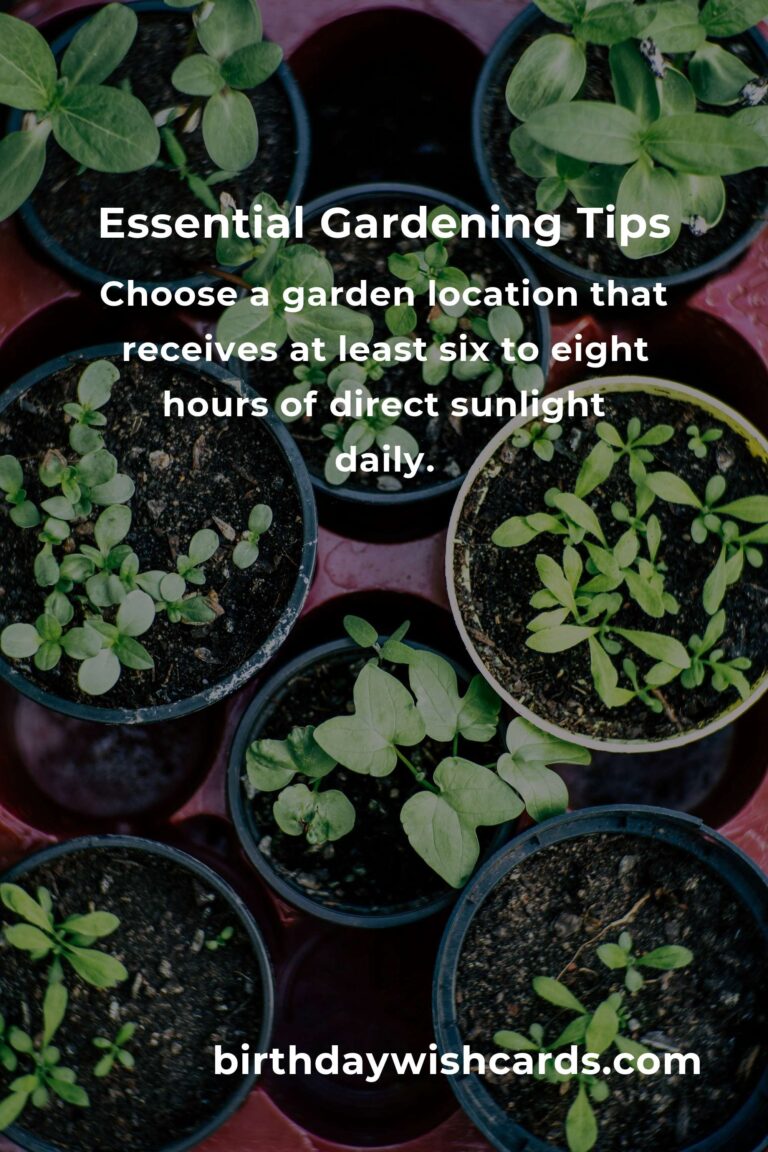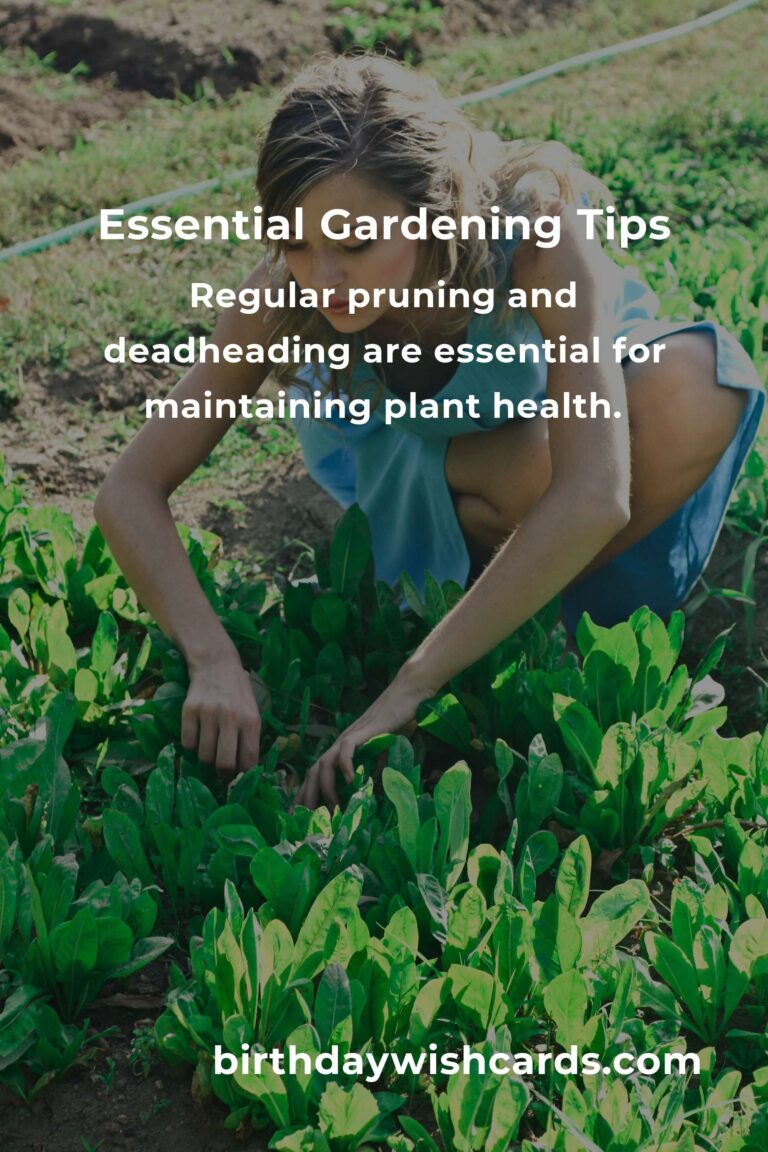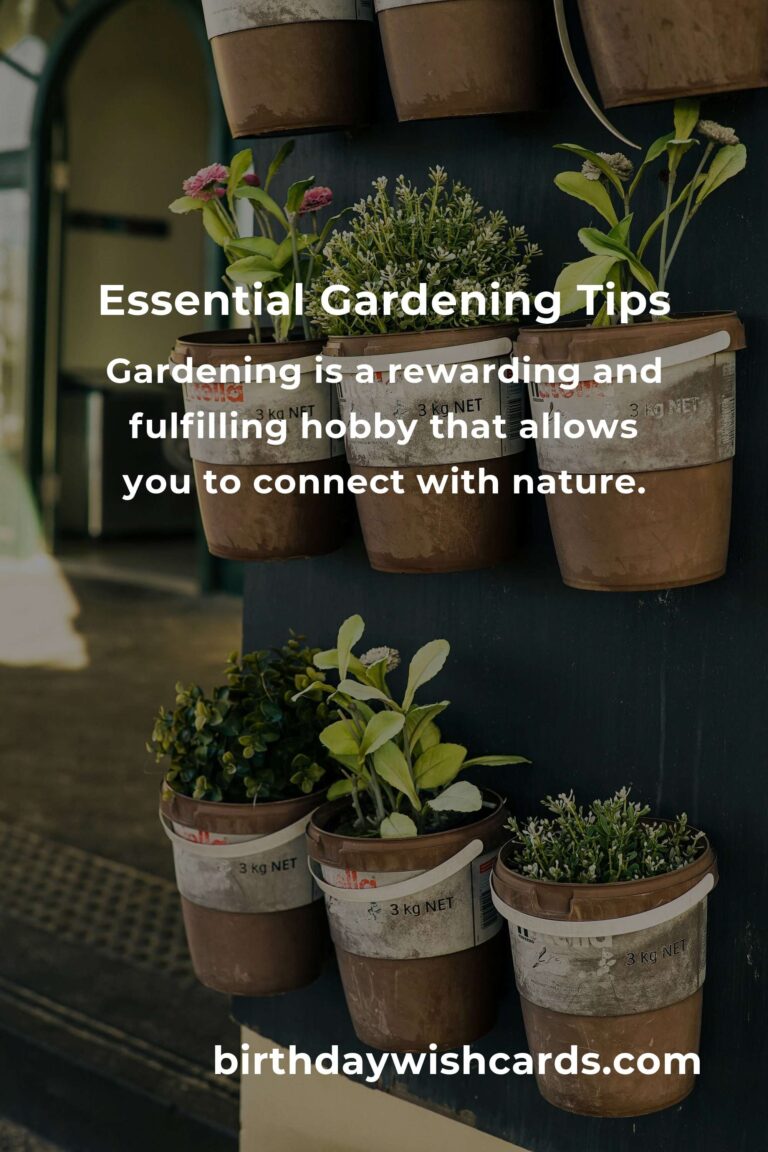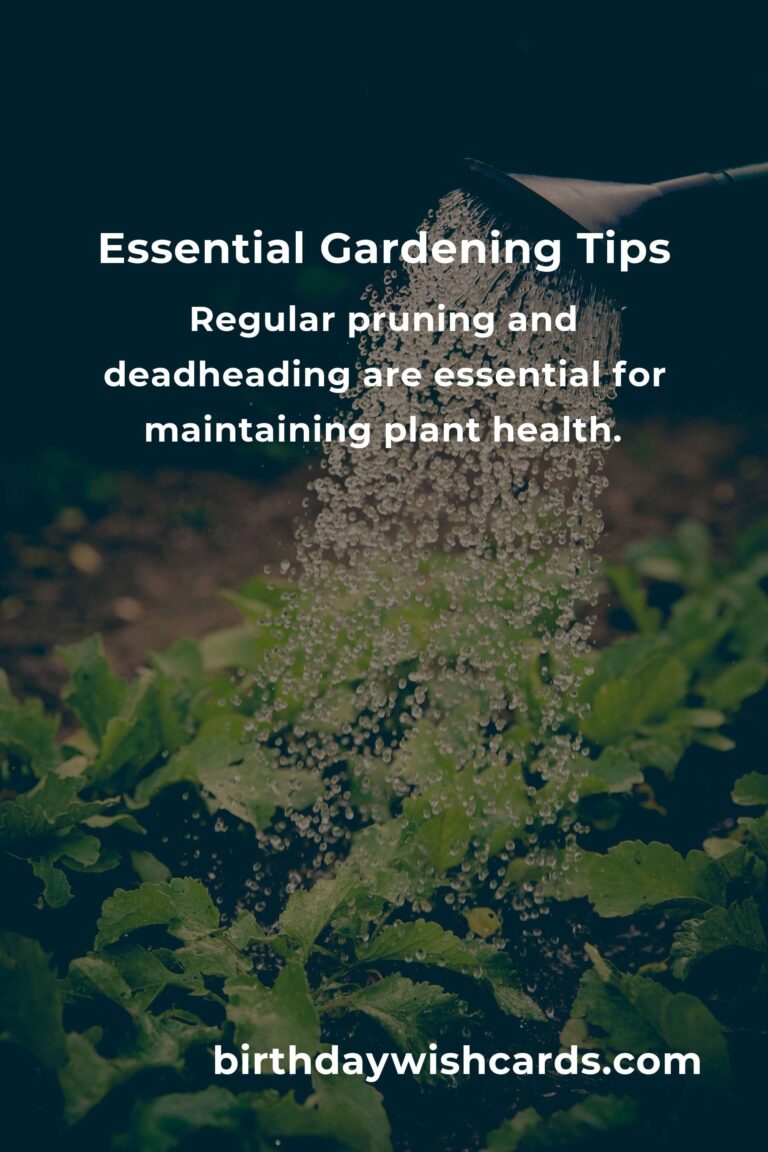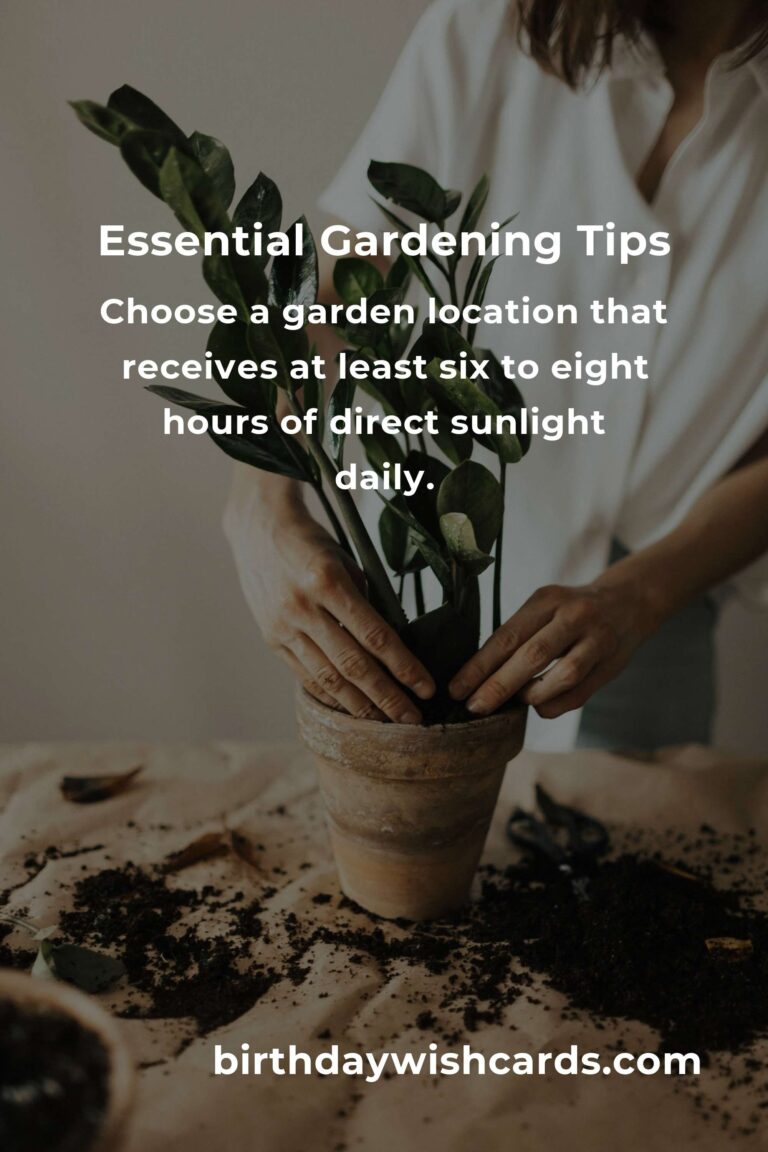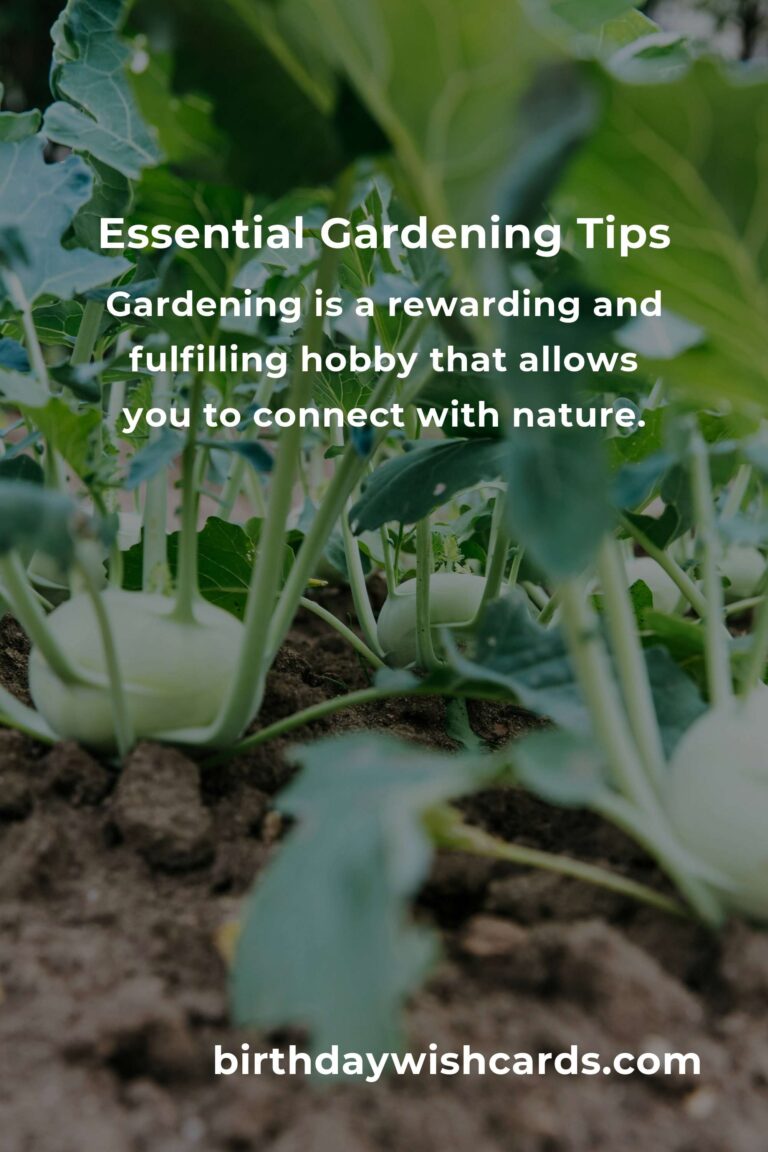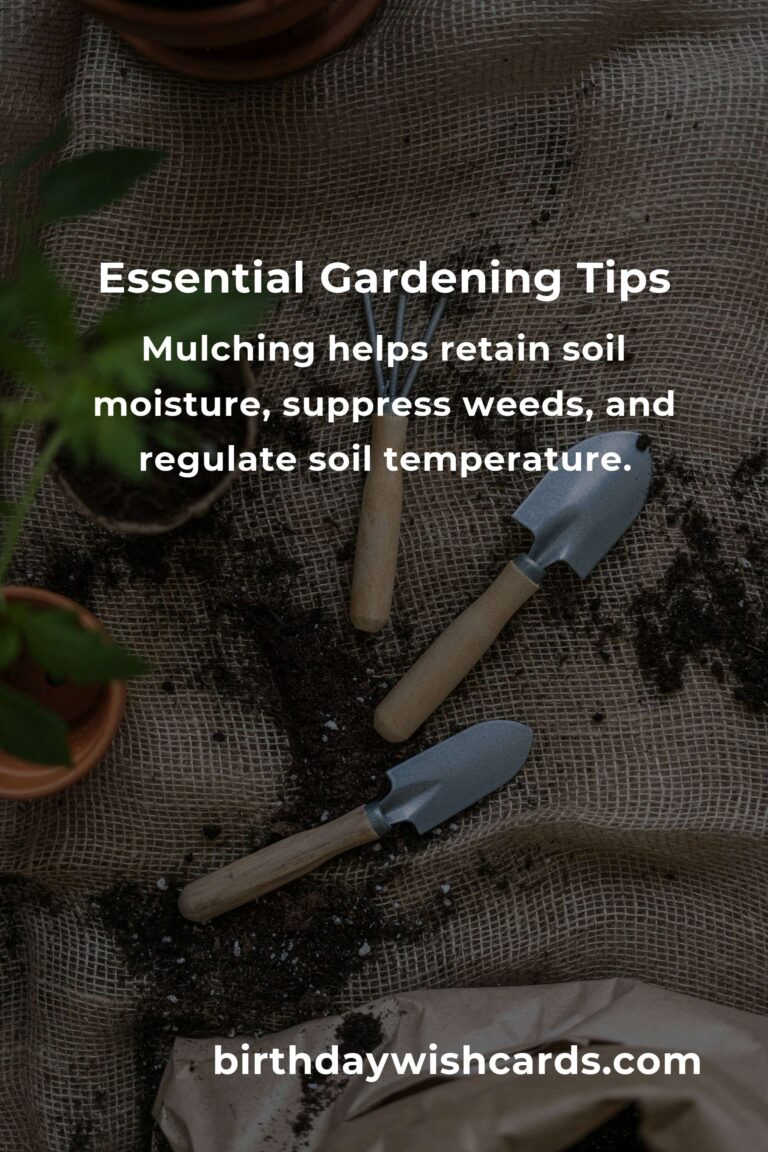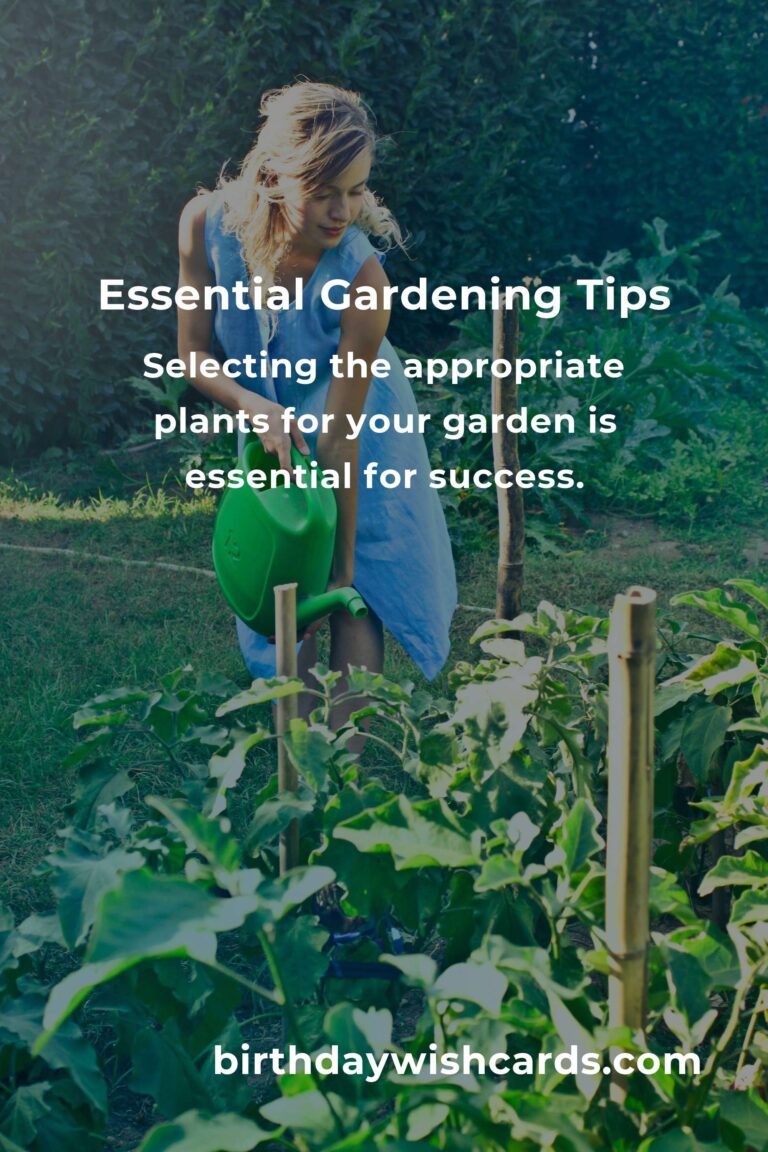
Gardening is a rewarding and fulfilling hobby that allows you to connect with nature and create beautiful outdoor spaces. Whether you’re looking to grow your own vegetables, cultivate a flower garden, or simply beautify your yard, understanding the fundamentals of gardening is crucial. Here are seven essential gardening tips that every beginner should know.
1. Choose the Right Location
The first step in starting a garden is selecting the right location. Most plants require ample sunlight to thrive, so choose a spot that receives at least six to eight hours of direct sunlight daily. Additionally, consider the soil quality and drainage in the area, as these factors can significantly impact plant health.
2. Prepare the Soil
Healthy soil is the foundation of a successful garden. Before planting, it’s important to test your soil’s pH and nutrient levels. You can purchase a soil testing kit from a garden center or online. Based on the results, amend the soil with organic matter, such as compost or well-rotted manure, to improve its structure and fertility.
3. Choose the Right Plants
Selecting the appropriate plants for your garden is essential for success. Consider your region’s climate, soil type, and the amount of sunlight the garden receives. Research which plants are best suited to your area and choose varieties that are known to thrive locally.
4. Water Wisely
Proper watering is crucial for plant health. It’s important to water deeply and less frequently, rather than giving plants a light daily sprinkle. This encourages roots to grow deeper into the soil, making plants more resilient to drought. Early morning is the best time to water, as it reduces evaporation and allows plants to absorb moisture efficiently.
5. Mulch for Moisture Retention
Mulching your garden beds helps retain soil moisture, suppress weeds, and regulate soil temperature. Apply a layer of organic mulch, such as straw, wood chips, or shredded leaves, around your plants. This will not only conserve water but also add nutrients to the soil as it breaks down.
6. Prune and Deadhead Regularly
Regular pruning and deadheading are essential for maintaining plant health and encouraging new growth. Remove dead, damaged, or diseased branches to improve air circulation and sunlight penetration. For flowering plants, deadhead spent blooms to promote more flowers.
7. Keep an Eye Out for Pests and Diseases
Vigilance is key to preventing pests and diseases in the garden. Regularly inspect your plants for signs of trouble, such as discolored leaves, holes, or unusual spots. Implement integrated pest management (IPM) techniques, such as introducing beneficial insects, using organic sprays, and maintaining garden cleanliness, to keep problems at bay.
By following these essential gardening tips, beginners can set the foundation for a thriving and beautiful garden. Remember, gardening is a journey of learning and experimentation, so don’t be afraid to try new things and adapt as you go. Happy gardening!
Gardening is a rewarding and fulfilling hobby that allows you to connect with nature. Choose a garden location that receives at least six to eight hours of direct sunlight daily. Healthy soil is the foundation of a successful garden. Selecting the appropriate plants for your garden is essential for success. Proper watering is crucial for plant health, encouraging deeper root growth. Mulching helps retain soil moisture, suppress weeds, and regulate soil temperature. Regular pruning and deadheading are essential for maintaining plant health.
#GardeningBasics #BeginnerGardening #GardenTips #PlantCare #SustainableGardening



